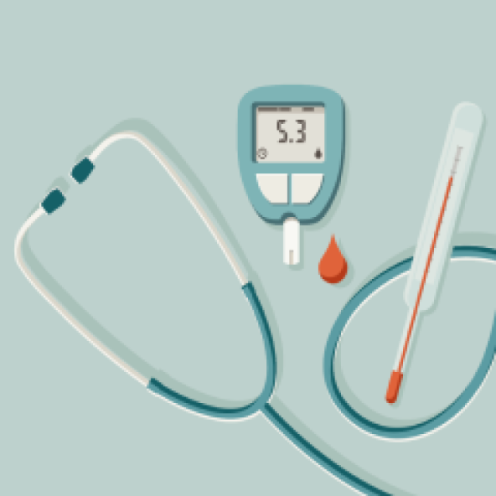- News
- Health
The carotid ultrasound takes just 15 to 30 minutes, involving a small handheld device gently passed over the neck
Storm NewtonThursday 27 November 2025 00:01 GMT
 CloseRelated: Doctors can now detect heart failure by scanning this other body part
CloseRelated: Doctors can now detect heart failure by scanning this other body part
Sign up for our free Health Check email to receive exclusive analysis on the week in health
Get our free Health Check email
Get our free Health Check email
 Email*SIGN UP
Email*SIGN UPI would like to be emailed about offers, events and updates from The Independent. Read our Privacy notice
A straightforward neck scan could offer a crucial early warning system for heart failure in men, according to new research.
This non-invasive technique, akin to ultrasound scans performed during pregnancy, is described by researchers as "safe, cheap and painless".
They suggest general practitioners could consider offering it to male patients over 60.
Known as a carotid ultrasound, the procedure takes just 15 to 30 minutes, involving a small handheld device gently passed over the neck.
It enables medical professionals to assess the flexibility of the carotid arteries – the primary vessels supplying blood to the brain, face, and neck.
While these major arteries are naturally elastic, they can stiffen due to age or disease, a condition linked to high blood pressure, heart failure, and an elevated risk of heart attack and stroke.
The study, led by University College London (UCL), included 1,631 men aged 71 to 92.
A quarter of those with the least flexible arteries included in the analysis were 2.5 times more likely to develop heart failure compared to those with the most flexible arteries.
Researchers used data from the British Regional Heart Study, which started in the 1970s, and more research is needed to determine if the method works on women.
Dr Atinuke Akinmolayan, a National Institute for Health and Care Research (NIHR) academic clinical fellow who led the research from UCL and is now a GP, said: “The carotid ultrasound is a safe, cheap and painless investigation, and our findings suggest it may be able to provide an early warning sign for heart failure.
“More research is needed, especially to see if this works for women, but this is something GPs could look at offering to people over the age of 60, where possible and believed needed.
“A patient who gets an ultrasound result indicating they may be at higher risk of future heart failure could have an important conversation with their doctor about lifestyle changes they could make to lower that risk.”
 The procedure enables medical professionals to assess the flexibility of the carotid arteries – the primary vessels supplying blood to the brain, face, and neck (Alamy/PA)
The procedure enables medical professionals to assess the flexibility of the carotid arteries – the primary vessels supplying blood to the brain, face, and neck (Alamy/PA)The British Heart Foundation (BHF), which part-funded the research, estimates that around 920,000 people in the UK are living with heart failure.
Elsewhere, the study, published in the Journal of the American Heart Association, looked at the thickness of carotid arteries.
Researchers found that men with thicker vessels were more likely to have a heart attack.
For every 0.16 millimetre increase in thickness, heart attack risk increased by about 29%, the study suggests.
Professor Bryan Williams, chief scientific and medical officer at the BHF, said: “The findings of this study are interesting and show that stiffening of arteries is associated with increased risk of heart failure, most likely due to the heart having to work harder against the resistance caused by these stiffer arteries.
“It is an important signal that whenever we detect such changes in the carotid arteries, we should also be thinking of the potential impact on the heart and an increased risk of heart failure, which we have treatment strategies to prevent.”
A separate study, also led by UCL, suggests a 10-minute scan could help millions of people with hard-to-treat high blood pressure.
It targets those who have a problem with their adrenal glands producing too much of the hormone aldosterone, which regulates levels of salt in the body.
This issue is estimated to affect about a quarter of people with high blood pressure.
The scan, developed by UCL, is designed to detect overactivity in the adrenal glands that might be missed by traditional tests.
Prof William, who is chairman of medicine at UCL and clinical lead for the study, added: “We have been waiting for a test like this for many decades.
“This British innovation is going to transform the diagnosis of aldosterone excess as an important and previously hidden cause of hypertension in many of our patients.”

